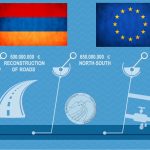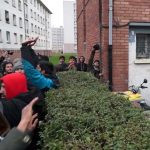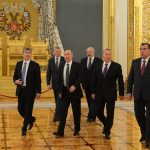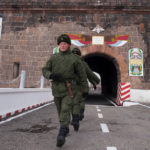- 7 April, 2023
- Foreign Policy
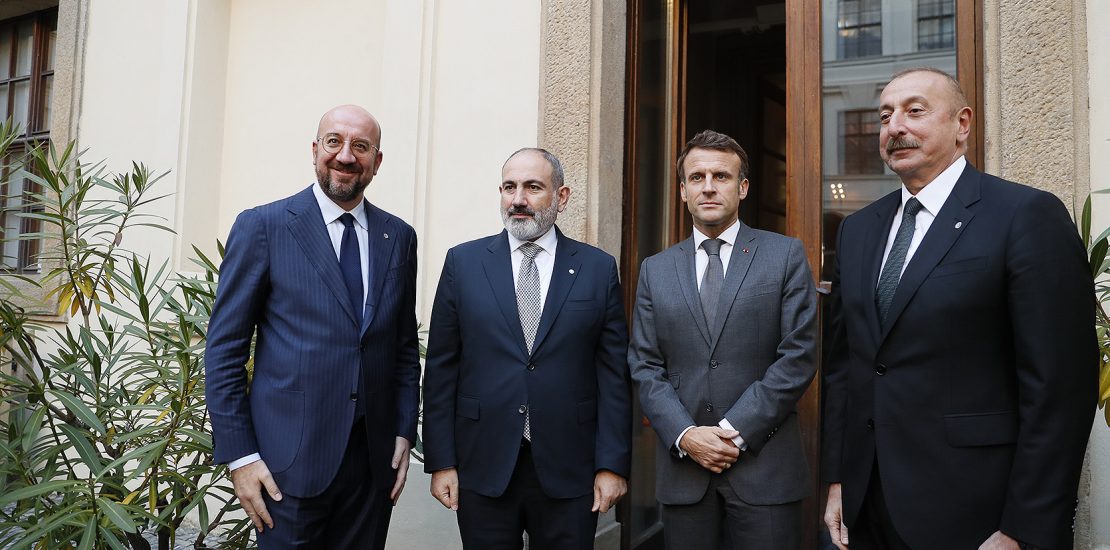
After October 7, 2022, when the meeting of Armenian Prime Minister Nikol Pashinyan and Azerbaijani President Ilham Aliyev took place in Prague with the mediation of French President Emmanuel Macron and President of the European Council Charles Michel, there were claims in some Armenian opposition and Russian circles that Russia’s lack of response to Azerbaijan’s aggression against the Armenian side is due to the interventions of the European side in the conflict settlement process.
What happened
After the 44-day war in 2020, the Russian Federation became essentially the only mediator in the settlement of the Karabakh conflict, whose peacekeepers were deployed in Nagorno Karabakh and the Lachin Corridor after the end of the war. Russia consolidated its position in the conflict after the end of the war, with the trilateral statement signed by Russian President Vladimir Putin, Armenian Prime Minister Nikol Pashinyan and Azerbaijani President Ilham Aliyev on November 9, 2020, another trilateral statement signed in Moscow by Russia, Armenia and Azerbaijan on January 2021, and the talks in Sochi between the leaders of the three countries and subsequent statements on November 26, 2021 and October 31, 2022.
On December 14, 2021, after the 44-day war, the meeting of the leaders of Armenia and Azerbaijan took place for the first time with the mediation of Charles Michel, the President of the European Council. During 2022, several similar meetings took place, namely on April 6, May 22 and August 31. On October 7, a Pashinyan-Macron-Michel-Aliev meeting took place in Prague.
The violations and aggression
Contrary to claims that the reason for the Azerbaijani aggression against Armenia and Nagorno Karabakh is the European mediation, Azerbaijan took similar actions not long after the end of the war, when on December 11, 2020, the Azerbaijanis occupied the Armenian-controlled Hin Tagher and Khtsaberd villages of Hadrut region , killing, injuring and capturing Armenian servicemen.
The next major invasion took place already in the sovereign territory of the Republic of Armenia, when in May 2021 the Azerbaijanis advanced in the area of Verin Shorzha village of Gegharkunik province and Sev lake of Syunik province. Although Armenia appealed to Russia and the Collective Security Treaty Organization, neither Moscow nor the CSTO took the necessary steps to eliminate the consequences of Azerbaijani aggression and prevent similar developments. This was followed by attacks unleashed by Azerbaijan in Yeraskh in the summer of the same year and in Sisian in November. As for Nagorno Karabakh, where the Russian side is carrying out a peacekeeping mission, in March 2022 the Azerbaijanis occupied the village of Parukh along with the adjacent hill, which was also left unanswered by Moscow. In addition, starting from December 2022, the Azerbaijani side has been keeping the Lachin Corridor connecting Nagorno Karabakh with Armenia closed, despite the fact that its control was supposed to be carried out by the Russian side.
However, the major aggression took place on September 13, 2022, when Azerbaijan launched a large-scale attack in Syunik, Gegharkunik and Vayots Dzor provinces of Armenia. At that time, too, Armenia appealed to the CSTO for help, but in vain. The Azerbaijani aggression was stopped only by the efforts of the Armenian army and international actors, particularly the US.
Conclusion
The aforementioned evidence regarding the violations of agreements reached through negotiations with different formats and mediators prove that Azerbaijan’s advances into Armenia’s sovereign territory and Nagorno Karabakh have always remained unanswered by Russia, regardless of whether the parties negotiated through European mediators or not. Therefore, the claims that Russia does not fulfill its obligations to Armenia and Nagorno Karabakh because of the European mediation are ungrounded.
Vahe Ghukasyan
Union of Informed Citizens

